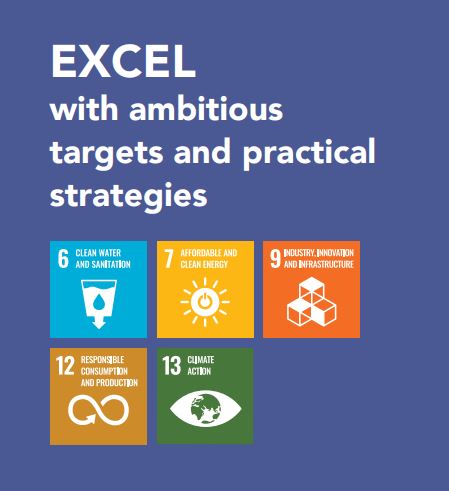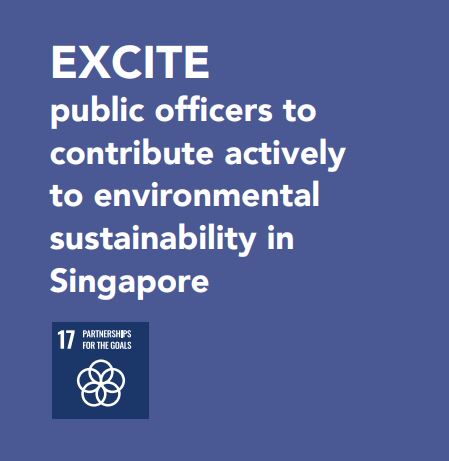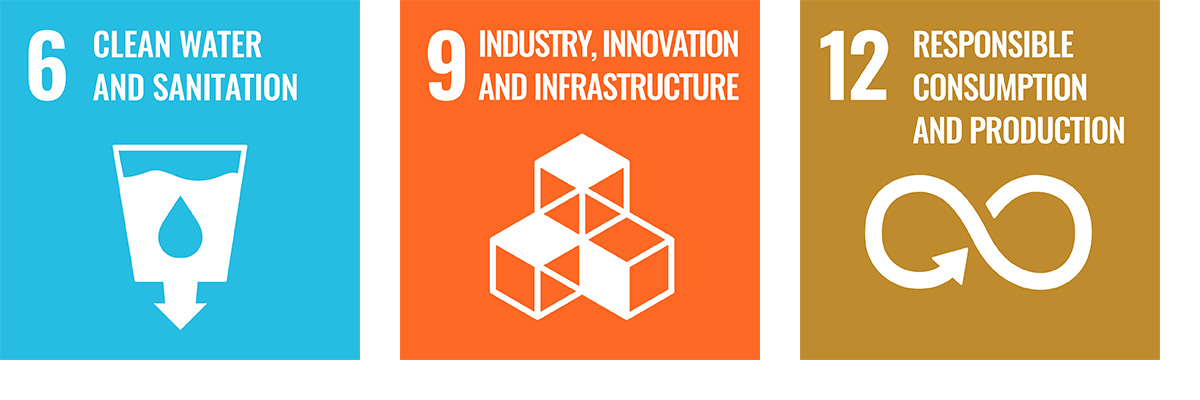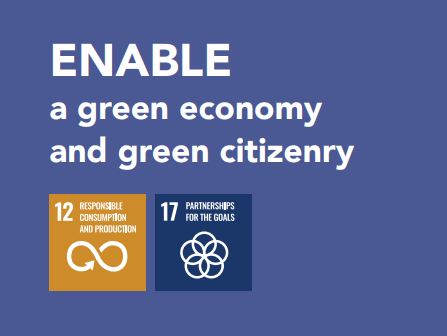Green Government

The public sector will lead the way to pursue sustainable development with the GreenGov.SG initiative.
Launched in 2021, GreenGov.SG is a key enabler of the Singapore Green Plan 2030. The name “GreenGov.SG” reflects the cross-cutting role of the Government in supporting the national sustainability agenda.
Under GreenGov.SG, the public sector will strive to attain ambitious sustainability targets in carbon abatement and resource efficiency, and be a positive influence and enabler of green efforts.
GreenGov.SG has three pillars:
Excel

| Focus Area | Target |
|---|---|
| Greenhouse Gas Emissions | Net zero emissions around 2045, after peaking emissions around 2025 |
| Energy | Reduce energy use¹ by 10% from the baseline by 2030 |
| Water | Reduce water use² by 10% from the baseline by 2030 |
| Waste | Reduce waste disposed of³ by 30% from the baseline by 2030 |
¹ Represented by the Energy Utilisation Index, which is energy used per unit area.
² Represented by the Water Efficiency Index, which is water used per person per day.
³ Represented by the Waste Disposal Index, which is waste disposed of per person per day.
Enable
| Focus Area | Target |
|---|---|
| Green Economy | Incorporate environmental sustainability considerations into all government procurement by 2028 |
| Green Citizenry | Embed environmental sustainability into public touchpoints and community-based programmes |
Excite

| Focus Area | Target |
|---|---|
| Capability Building | Elevate environmental sustainability awareness and knowledge across the public sector |
| Culture Building | Enable public officers to take environmental sustainability action in the workplace and as part of daily living |
GreenGov.SG Report
The inaugural GreenGov.SG report was published in December 2023. This report provides a snapshot of the Singapore public sector’s FY2022 environmental sustainability performance. It also documents the public sector’s key strategies and initiatives to enhance environmental sustainability and meet our targets.
View the GreenGov.SG Report here.
The Singapore Public Sector is a member of the Net Zero Government Initiative. Participating countries commit to achieving net zero emission from national government operations no later than 2050, and develop a roadmap that outlines the pathway for achieving the net zero commitment.
The Net Zero Roadmap can be found here.
As we progress along our sustainability journey, we will continue to learn from others, and improve our performance and plans.
It will require a whole-of-nation effort to achieve our national environmental sustainability goals. Together, we can chart our way towards a low-carbon and sustainable future for Singapore.
In support of SDGs:




